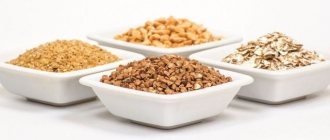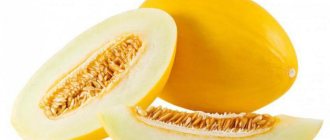The dog is mammal, so it is logical to assume that milk is a natural and healthy food for her.
Many owners feed their dogs milk constantly, even into adulthood. But is this right? How beneficial is this product for dogs and is it well absorbed? And also what can replace it in your pet’s diet.
Role in diet
Milk is a source of easily digestible calcium, protein, amino acids and vitamins necessary for the body. It fills you up quickly and complements everyday dishes well. It has many medicinal properties:
- helps with viral diseases - a glass of hot milk with honey activates the immune system and provides the energy necessary to fight bacteria;
- for insomnia and headaches - due to the fact that milk contains tryptophan and phenylalanine acids, the nervous system calms down, pain subsides, and sleep comes faster;
- for stomach diseases – helps regulate acidity, reduces pain and even helps to lose weight faster;
- for cosmetic purposes - milk-based masks perfectly nourish the skin, have an anti-inflammatory and rejuvenating effect.
Milk is very beneficial for the human body, but drinking it whole is not always possible for everyone. It contains casein protein, the absorption of which requires a special enzyme - renin. An adult does not have it, but its role is played by the enzyme pepsin. But pepsin does not always take on the tasks of renin, but only in 70% of people; in the remaining 30%, whole milk causes bloating and other digestive disorders .
Another negative property of milk is its high calcium content. On the one hand, this is good, but on the other, due to casein, calcium in the stomach is oxidized, and the body has to use its calcium reserves to bring the acid-base balance back to normal. It turns out that instead of saturating the body with calcium, milk takes away part of its reserves .
Milk contains a lot of milk sugar - lactose. When it enters our body, it is broken down into glucose and galactose. Galactose is not only not absorbed, but also not completely eliminated from the body, but is deposited in joints, on the lens of the eye, under the skin and in other places . The exception is children under 2 years of age, whose body can still fully absorb galactose.
Pros and cons of the presence of the product in a dog’s diet
In terms of the presence and variety of useful macro- and microelements included in its composition, milk literally tops the list of healthy products. What ingredients must be included in the diet?
- magnesium, calcium, sulfur, phosphorus for the development and maintenance of strong bones and joints;
- healthy fats and proteins to provide the body with energy;
- The complex of vitamins contained strengthens the pet’s immunity.
Adult dogs often refuse colostrum themselves.
Why can't dogs have milk? It would seem that there are enough arguments proving its benefits, but there are undeniable disadvantages:
- the presence of lactose, or milk sugar, which is poorly absorbed by the animal’s body and can disrupt the functioning of the gastrointestinal tract;
- Constant consumption of natural milk overloads the liver.
For your information! Puppies absorb the product well, since their bodies produce the enzyme lactase, which breaks down lactose.
With age, the production of the enzyme is less active, which is why an adult pet may have problems digesting lactose.
Puppies digest milk well thanks to a special enzyme
Benefit or harm?
Cow
Cow's milk is very different in composition from dog's milk . It contains almost 3 times less proteins and fats, as well as phosphoric acid, iron and lime. Therefore, when feeding puppies, cow's milk is supplemented with raw chicken eggs to balance the composition of nutrients and increase calorie content. But keep in mind that due to the high lactose content, cow's milk can cause diarrhea.
Goat
Goat's milk is healthier than cow's milk : it contains more proteins, fats (precisely unsaturated), calcium and easily digestible vitamin A. It is better absorbed, so it is recommended to give it to puppies much more often than cow's milk.
But in any case, you need to constantly monitor the condition of the dog’s feces: it should not be liquid . Diarrhea is a bad sign and a reason to immediately stop giving milk, or give it, but dilute it with water.
Types of milk in dog nutrition
It turns out that the animal’s reaction depends on the type of milk. A cow, goat and horse have completely different compositions of nutrient fluid, and accordingly, their effect on the body. For dogs, as for people, it is recommended to choose a drink based on its benefits and ease of digestion.
Goat
The best product for feeding newborns and animals. Despite the somewhat specific taste and aroma, the product is extremely useful and is not inferior in properties to the mother’s. The maximum concentration of vitamins and microelements is perfectly absorbed and lays the foundation for the immune system. The amount of allergen is minimal, so negative perception of the product is reduced to zero. Despite this, milk is first given diluted to drink, then they begin to cook porridge with it, and only after that they are allowed to drink it in its pure form.
Cow
The most common type of product, widely used for feeding puppies. It contains a lot of lactose, but if there is no reaction, the animal can be fed cereals with milk for up to a year, gradually reducing its amount. Kefir and cottage cheese can be left in the animal’s diet forever, if the products are well tolerated.
Kobylye
The product is radically different from the above in composition. It is low in protein and fat, and lactose is present in excess. Veterinarians are categorically against the use of this product for feeding dogs. Kumis is made from milk; it is contraindicated for animals and children due to the presence of alcohols in the composition.
In case of poisoning
If a dog is poisoned, it, like a person, needs light food that will not overload the digestive system. It can be a chicken egg, cottage cheese, oatmeal, yogurt, lean boiled meat, liver. Under no circumstances should you give milk , as it is a very heavy food and can seriously aggravate the condition of a sick animal.
Reference! Milk can only be given if the dog is poisoned by heavy metal salts: lead or mercury. The proteins that are present in this product “bind” and remove heavy metals from the body.
Connection with diseases
People use dairy products for various diseases. For example, when you have a cold, you drink milk with honey. Therefore, there is an opinion among owners that in case of poisoning or other diseases, it can be used as a medicine for a pet:
- If your friend is poisoned, he needs light food that will not put additional stress on the stomach and intestines. Milk should not be given under any circumstances.
It can only be used in case of poisoning with salts of heavy metals (mercury, lead), the protein will bind and remove them from the body. But only a veterinarian can determine the cause of poisoning. You cannot self-medicate.
- Often, owners, trying to cure various diseases, try to strengthen the dog’s body with milk. For example, this mistake is often made with enteritis. This is a very rapid disease accompanied by diarrhea and vomiting. And introducing a dairy product into a dog’s diet during illness will only add problems. In this case, you can use whey , which contains more calcium, but is a product with less fat content;
- Due to the high calcium content, calcium oxalate crystals can form in the dog's body, which are a type of urolithiasis. Such stones grow very quickly, have different shapes and are difficult to treat. This does not mean that any dog cannot have milk. However, there are breeds that have a predisposition to the formation of oxalates: miniature poodles, Yorkies, Shih Tzus, miniature schnauzers, Bichon Frize.
We can say that milk is a heavy product that is not recommended to be given to your pet, especially during periods of illness accompanied by gastrointestinal disorders.
However, it will be useful to include it in the diet nursing bitch. The lactation period of a dog lasts about 4-6 weeks, during this period it is necessary to replenish all useful substances. For this purpose, a special diet is used, which includes milk.
But the owner should strictly monitor the condition of the mother dog. If her condition deviates from the norm, her diet should be revised towards safer foods, and you should seek advice from a doctor.
How often and in what quantities?
Elena Glikina’s “Home Guide for Dog and Cat Owners” indicates the amount of whole milk for puppies:
- 1-2 months – 100 ml;
- 2-3 months – 100-200 ml;
- 3-4 months – 200-250 ml;
- 4-5 months - only kefir.
Even as adults, many pets love milk very much and often ask for it themselves. If you see that there are no changes in the stool, sometimes you can give him 0.5-1 glass ( depending on his weight , for example, this will be a lot for a small dog).
Can a dog drink milk?
It is not recommended to give protein-rich liquid to adult pets who have not received milk since weaning. As the dog grows and develops, a specific enzyme, lactase, ceases to be produced in the required volume. As a result, this leads to indigestion, allergic reactions, inflammation of the pancreas, and stool disorders in the animal.
For puppies, milk consumption is beneficial and in some cases, life-saving. This applies to cases where the puppy was separated from its mother early or the bitch herself does not have enough milk.
An excellent alternative is not cow's milk, but goat's milk. It is less allergenic and has superior nutritional properties to cow's milk. Artificial feeding of puppies must be carried out under a number of conditions. The main ones are:
- Quantity of product. Newborn puppies, depending on the breed, should consume from 3 to 7 ml of milk at a time. With age, the amount of milk increases. It is advisable to know the puppy’s weight, which will allow you to calculate a more accurate amount. It should be no more than 7% of the baby’s weight.
- Frequency of appointments. Puppies up to two weeks of age should be given milk every 3-4 hours, including at night. On average, there should be at least 7 meals per day. Night feeding is removed after the puppy reaches three weeks of age.
- Milk temperature. After birth, babies who are forced to be bottle-fed should drink warm milk, the temperature of which is within 38 degrees. As the puppy grows, the temperature can be reduced to 26 degrees.
- Fat content of the product. Babies under 4 weeks of age who are forced to go without mother's milk should receive high-fat mother's milk substitutes. It is recommended to use goat's milk. As soon as the puppy grows up, the milk must be diluted in equal proportions - 1:1. The percentage of fat content is thus reduced, and there is no load on the internal organs.
What's the best way to give?
For adults
For an adult dog (if you do give it or decide to give it), it is better to simply pour milk diluted with water into a bowl without mixing it with anything. But this is at your own peril and risk. Many owners feed their pets this way every day and do not notice any changes. It all depends on the individual characteristics of the pet’s body.
Should I give them chappy or other dry food?
Puppies are sometimes given food soaked in milk to make it softer and tastier. You can't do that! Most dog food contains preservatives and a lot of pathogenic flora, which, due to the presence of milk, multiply intensively and can cause poisoning.
With porridge
Whole milk and milk cereals are harmful for adult dogs , but there are cases when it is impossible to do otherwise. For example, after a long illness, when the dog needs to gain weight, and it is difficult to do this with the help of slimy porridges in water and lean meat. In this case, you can sometimes cook porridge with milk diluted 1 to 1 with water.
Adding to tea or coffee
Milk + tea or coffee = poisonous substance for your pet. Never give your dog such a drink , even if he really asks (and this happens). Milk is not digested and causes diarrhea and vomiting, and caffeine, which is found in tea and coffee, can cause serious poisoning, even death.
Reference! The exception is lactating bitches. To increase milkiness, they are given coffee substitutes (for example: “Ear”) with milk and honey: 1 tsp. for 0.5 l. 3 times a day.
For puppies
If the bitch's milk supply has disappeared/decreased or the puppies have been taken away from their mother early, they should continue to be fed milk . Dog milk can be replaced with cow's or goat's milk.
To bring the composition of the milk as close as possible to the composition of the bitch’s milk, you need to add a fresh chicken egg to it: 1 pc. for 0.5 l. Later, when the puppy begins to lap from the bowl, you can add bread crumbs and cook milk porridge.
Dairy nutrition with a smooth transition to complementary foods begins at 20-21 days and continues until 1.5-3 months , then you can switch the puppy to fermented milk products and cottage cheese.
Pregnant or breastfeeding
During pregnancy and nursing puppies, the bitch experiences an urgent need for additional protein. With insufficient consumption of protein foods, pregnancy can be interrupted, the body is weaker and less resistant to diseases. To compensate for protein deficiency, milk , as well as cottage cheese and kefir can be added to the animal’s diet.
If you give milk to a pregnant or already whelped dog, monitor her body’s reaction. If it doesn’t make you weak, you can give up to 1 liter of milk per day.
How much milk can you give a dog
The amount of milk you can give your dog depends on the breed and age. The product is contraindicated for some breeds due to allergies to it:
- bulldogs;
- Dalmatians;
- setters;
- pugs;
- lap dogs
- German Shepherds.
The product should be given to miniature dogs with caution, as their stomachs are more sensitive.
However, for the most part, the amount of milk allowed for dogs depends on the age of the animal.
For puppies
If your dog has lost milk, it is extremely important to feed the puppies until they are able to eat solid food. A good alternative would be goat. To make it easier to digest, it is mixed with raw yolk.
It is better to give milk to puppies from the 21st day of life, however, if the baby has lost it from birth, then feeding is allowed from the 5th day. Veterinarians advise continuing complementary feeding for up to six months, after which the consumption of dairy products should be limited.
The amount of milk depends on the age of the puppy: the younger he is, the smaller the portion. At 2 months - up to 100 milliliters, at 4 months - up to 250 milliliters.
For adult dogs
As dogs age, the production of the enzyme that breaks down milk sugar sharply decreases. Because of this, it is not recommended to give milk to adult animals.
Problems with digestion usually begin at six months. However, it is different for all dogs: some pets happily use it without consequences throughout their lives, others suffer from allergies and diarrhea.
If your dog cannot refuse milk, then a small amount is acceptable, but subject to the following rules:
- Give in limited quantities: up to 2 times a week.
- It is better to feed with goat's milk.
- It is better to dilute the product with water to avoid liver problems. Absolutely skim milk is also considered harmful, since calcium is almost not absorbed when consumed.
- Buy milk with low milk sugar content from your veterinary clinic or store.
Are there any exceptions for breeds?
Milk is contraindicated for all adult dogs, but especially for breeds that are prone to food allergies. These include all light-colored dogs : bulldogs (including French), boxers, Dalmantines, terriers, Labradors, setters, etc.
Breeds of small dogs such as Papillon, lapdog, and pug are especially susceptible to the diet. Some breeds of puppies, such as German Shepherds, often experience bloating and diarrhea, which should also be taken into account when deciding whether to give them this product or not.
Benefits of cottage cheese
Cottage cheese is a necessary element in the diet of animals. It contains calcium, B vitamins, microelements (selenium, phosphorus, potassium, etc.). According to experts, there is no need to use it daily; it should be given no more than three times a week.
The amount of fermented milk product per meal should not exceed 1-6 tablespoons (the size of the animal affects the serving). Exceeding the dosage is not recommended, so as not to provoke impaired bone growth and stool problems. Puppies and large breed dogs, as well as pets with pancreatitis should limit their consumption of the product.
Cottage cheese should be fresh, the optimal fat content of the product is 5-9%. A product that is too fatty can cause diarrhea, and a low-fat product can cause poor calcium absorption.
For better absorption, it is recommended to add to cottage cheese:
- rice, buckwheat, oatmeal;
- fruits (preferably grated apple);
- vegetables (carrots, zucchini);
- low-calorie sour cream;
- chicken egg yolk;
- quail eggs (including shells).
Cottage cheese is indicated for a special low-protein diet. This is due to the fact that curd protein is lighter than meat protein and can, to some extent, replace meat. However, you need to remember that if a dog is allergic to meat protein, then it will also be allergic to cottage cheese.
If the cottage cheese is not homemade, but purchased, you should carefully study the composition. There should not be any additives, dyes or preservatives in it, as they can cause allergies. It is advisable to give your dog calcined cottage cheese, which is easy to prepare at home. From a medical point of view, it is considered the most useful.
How to choose?
The best option for dogs is lactose-free milk . Animals drink it with pleasure and without harm to their health. Goat's milk is also relatively safe: unlike cow's milk, it does not contain as much lactose and is less fatty.
Mare's milk (most of all lactose) and soy milk (too much protein) are dangerous for dogs . And such exotic types as coconut and almond can be given only in very small quantities and then after you make sure that their composition is completely natural.
What to do if things get bad?
If your dog starts vomiting or has diarrhea after drinking milk, you need to take the following steps :
- stop feeding the dog for 1-2 days;
- Provide her with enough clean water. If he doesn’t drink, force-feed from a spoon or pipette;
- After a fasting diet, you can include light foods in your diet: low-fat broths, beef, low-fat cottage cheese, well-cooked rice and rice concoctions.
If the symptoms disappear after 2-4 days, you can gradually switch your pet to a normal diet. If not, contact your veterinarian. Also, the dog should be taken to the vet immediately if:
- she had a fever;
- blood appeared in the stool;
- she does not want to eat or drink;
- She constantly vomits and has severe weakness.
Dairy
Giving dogs kefir, yogurt, cottage cheese and unsweetened yoghurts is not only possible, but also necessary ! In fermented milk products, bacteria and yeast have already converted lactose into lactic acid and made the product safe for the animal.
Fermented milk products saturate the dog’s body with the necessary amount of calcium, protein, as well as beneficial vitamins and minerals. The most important thing is that it contains probiotic cultures, which are necessary for proper intestinal function.
Important! Sour cream, cheese and cream are too fatty foods that are harmful to dogs. And fermented baked milk can cause fermentation.
Special for animals
If your dog really loves fresh milk, you can give him special milk instead of regular milk from the store or homemade milk . It is sold in veterinary pharmacies and does not contain lactose. You can give it to your four-legged friend without fear - it will definitely not cause diarrhea and vomiting.
The most famous and trusted manufacturers of lactose-free milk for dogs:
- Royal Canin;
- Canina;
- Brit Kea;
- Nutri-Vet;
- Trixie.
All milk is mostly dry: it needs to be diluted in water, but this does not affect the consistency and taste. In terms of cost, the most budget products are produced by the Trixie brand.
What can happen if a dog drinks milk?
In adult dogs, the breakdown process is much slower due to insufficient amounts of the lactase enzyme, which breaks down the sugar in milk.
The lactose found in milk enters the gastrointestinal tract and from there into the large intestine, where undigested sugar promotes fluid accumulation and causes diarrhea, in addition to this, the fermentation process in the colon can cause flatulence and discomfort. If the level of lactase is insufficient, the consumption of milk by an adult dog causes gastrointestinal disorders in the form of diarrhea and vomiting.
At the same time, whole milk and other dairy products can contain fat, which also leads to diarrhea and vomiting. In addition, when consuming dairy products, especially those with high fat content, dogs can develop a potentially serious disease such as pancreatitis, which is most often not typical for them.
What else to feed for good digestion?
In addition to fermented milk products, you can include in your dog’s diet:
- Boiled beef - it is easily digested and provides the right amount of energy. Daily norm: 60 g per 10 kg of weight.
- Light soups with natural vegetables - such soups should contain more cabbage, beets, carrots and less potatoes. Even when boiled, they will give your pet’s body the necessary vitamins and fiber.
- Vegetable oil (unrefined: sunflower, flaxseed, pumpkin) – prevents kidney disease, cleanses the body, improves the condition of the coat and strengthens the dog’s immunity. 1-2 teaspoons per day is the norm.
- Porridges made from oatmeal, buckwheat, rice and millet - it is advisable to add vegetables to them and under no circumstances add salt.











